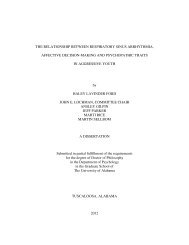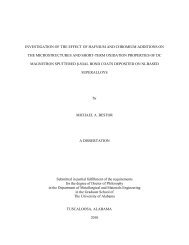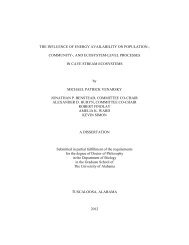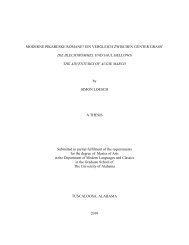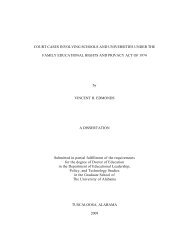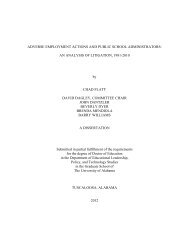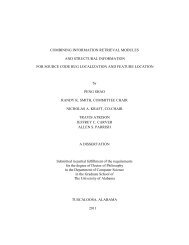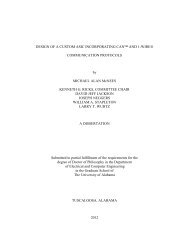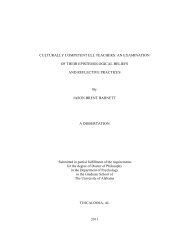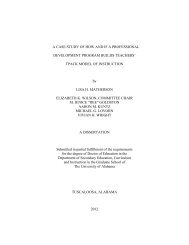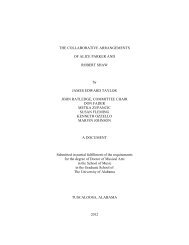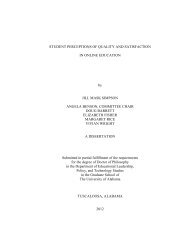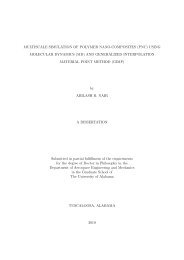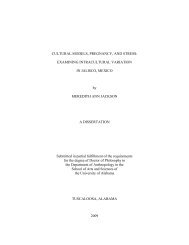Copyright Malvin Porter, Jr. 2010 - acumen - The University of ...
Copyright Malvin Porter, Jr. 2010 - acumen - The University of ...
Copyright Malvin Porter, Jr. 2010 - acumen - The University of ...
Create successful ePaper yourself
Turn your PDF publications into a flip-book with our unique Google optimized e-Paper software.
Social-cognitive learning theory has framed many studies that focus on aggressive and<br />
nonaggressive children’s reasoning about their values and beliefs concerning their own behavior<br />
(Arsenio & Lemerise, 2004; K. A. Dodge et al., 1997; Huesmann & Guerra, 1997). <strong>The</strong>se studies<br />
found that children who endorse unprovoked aggressive behavior as an acceptable way to<br />
achieve a goal have higher scores on teacher reports <strong>of</strong> children’s physical aggression (Archer &<br />
Haigh, 1997 as cited in Tisak, Tisak, & Goldstein, 2004). Aggressive children also are more<br />
confident that their aggressive behavior will result in tangible rewards (i.e., they will get what<br />
they want) (Crane-Ross, Tisak, & Tisak, 1998; Perry, Perry, & Rasmussen, 1986; M. S. Tisak et<br />
al., 2006), and they are more likely to believe that aggressive behavior is acceptable (Guerra &<br />
Slaby, 1990; Perry & Bussey, 1977; Slaby & Guerra, 1988).<br />
Adolescents who engage in higher rates <strong>of</strong> relational aggression expect positive outcomes<br />
from their behavior, such as being able to manipulate friendships or being able to control the<br />
membership <strong>of</strong> social groups (Goldstein, Tisak, Persson, & Boxer, 2004). Additionally,<br />
adolescents who endorse relational aggression as acceptable are more likely to use relational<br />
aggression themselves than adolescents who do not endorse the use <strong>of</strong> relational aggression as<br />
acceptable (Musher-Eizeman et al., 2004). In general, children and adolescents who tend to be<br />
the most socially competent at resolving aggressive conflict also hold clear social goals for<br />
maintaining positive relationships and avoiding trouble with peers (Delveaux & Daniels, 2000).<br />
In contrast, children and adolescents who demonstrate low social competence for resolving<br />
aggressive conflict tend to be unconcerned about maintaining positive relationships and avoiding<br />
trouble with peers.<br />
35



